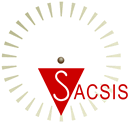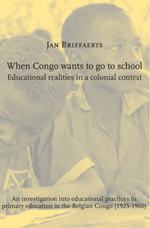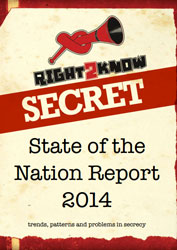The South African Civil Society Information Service
 A nonprofit news agency promoting social justice. Seeking answers to the question: How do we make democracy work for the poor?
A nonprofit news agency promoting social justice. Seeking answers to the question: How do we make democracy work for the poor?
About
SACSIS – the South African Civil Society Information Service – is a platform for policy dialogue that has been established as a news agency to channel social justice news and analysis about policy dialogue in South Africa to the media.
Rationale of SACSIS
SACSIS seeks to influence media reporting and consequently public policy discourse to promote the idea of the entitlement of the poor, to a higher standard of living and better quality of life.
Trustees of SACSIS
SACSIS is governed by a board of trustees drawn from civil society. Our trustees include activists and practitioners working in academia and NGOs.
Values of SACSIS
SACSIS embraces a rights based approach to development, which views poverty as a denial of human rights.
Approach of SACSIS
SACSIS releases between two and five articles per week. Our emphasis is on quality as opposed to quantity.
Het Ubuntuplein in Zutphen – Een buurt waar ouderen wonen, werken en voor elkaar zorgen
 Nieuwe solidariteit in de derde levensfase. September 2014. In ZorgLab2015 komen pioniers aan het woord die vanuit hun betrokkenheid zoeken naar nieuwe vormen van zorg en samenleven. Hugo Versteeg pleit al ruim tien jaar voor een andere invulling van de zogeheten derde levensfase; de generatie van zestig plussers met een carrière achter zich die een ander evenwicht willen tussen het werk en de invulling van hun vrije tijd. Als bestuurslid van de coöperatie Ubuntuplein zet hij zich in voor de bouw van een buurt waar ze samen wonen, werken en zorg delen. De plannen daarvoor zijn in een ver gevorderd stadium. In dit artikel een blik achter de schermen als aanloop naar een serie waarin wij de totstandkoming ervan op de voet volgen.
Nieuwe solidariteit in de derde levensfase. September 2014. In ZorgLab2015 komen pioniers aan het woord die vanuit hun betrokkenheid zoeken naar nieuwe vormen van zorg en samenleven. Hugo Versteeg pleit al ruim tien jaar voor een andere invulling van de zogeheten derde levensfase; de generatie van zestig plussers met een carrière achter zich die een ander evenwicht willen tussen het werk en de invulling van hun vrije tijd. Als bestuurslid van de coöperatie Ubuntuplein zet hij zich in voor de bouw van een buurt waar ze samen wonen, werken en zorg delen. De plannen daarvoor zijn in een ver gevorderd stadium. In dit artikel een blik achter de schermen als aanloop naar een serie waarin wij de totstandkoming ervan op de voet volgen.
Op een voormalig industrieterrein aan de noordzijde van het NS-spoor, heeft de gemeente Zutphen de bouw van een gloednieuwe woonwijk gepland: Noorderhaven. Het bouwverkeer rijdt er af en aan, links en rechts lege kavels met wervende informatieborden. De eerste appartementen zijn inmiddels bewoond, ze kijken uit op een braak terrein waar een kleine haven gepland is. De oude pakhuizen en fabrieksloodsen in de steigers even verderop bieden binnenkort onderdak aan innovatieve ondernemers. Schuin daar tegenover een flat, op de balkons staan opgestapelde verhuisdozen, kratten bier en tijdelijk gestald huisraad van bewoners die er kortgeleden zijn ingetrokken. De eerste contouren van de nieuwe wijk zijn zichtbaar. Wie het treinstation van Zutphen via de achteruitgang verlaat, ziet recht voor zich op ruim honderd meter afstand een rij felgele containers. Ze staan op een kaal terrein, omringd door een ijzeren hekwerk. Deze afrastering markeert het grondgebied waar binnenkort de eerste paal geslagen wordt voor het Ubuntuplein.
Geen exclusief domein
Doel van het Ubuntuplein-project is het creëren van een buurt waar oudere generaties zich als een vis in het water kunnen voelen. Geen gated community of resort voor pensionado’s, maar een plek voor bewoners die er voor kiezen om midden in de samenleving te staan. En van plan zijn om ook op hoge leeftijd een actief en sociaal leven te leiden. De kiem voor dit plan dateert van ruim tien jaar geleden. In 2004 zocht een groep senioren elkaar vond in hun visie op kwesties als sociale duurzaamheid en zinvol ouder worden. Hugo Versteeg was één van hen. Deze sociale pioniers spraken af hun ideeën uit te werken en ook samen in praktijk te brengen. ‘Kijk, dit is het resultaat,’ wijst Hugo Versteeg naar een folder met een artist impression van de buurt die het moet worden, inclusief plattegronden, technische gegevens en indicaties van prijzen voor het huren en kopen van de beschikbare ruimtes. Het gepresenteerde plan behelst ruim tweehonderd levensloopbestendige woonruimtes en circa 20 kleinere ruimtes die te gebruiken zijn als atelier, werkpraktijk, kantoor of hobbyruimte. En eventueel als gastverblijf voor logés. Er zijn woningen in de sociale- en in de vrije sector, het is een mix van huur, koop- en zorgappartementen. Een heel gevarieerd aanbod, bestemd voor ouderen, ondernemers, jonge gezinnen en mensen die professionele zorg nodig hebben. Er is een grand café gepland, er zijn plekken vrijgehouden voor commerciële ruimtes en een ruim aantal plaatsen wordt gereserveerd waar de alleroudsten terecht kunnen voor verblijf- en verpleegzorg. Dit laatste onderdeel gebeurt in samenwerking met de zorgorganisatie Sutfene. Er wordt nog gekeken naar de mogelijkheid van kinderopvang en eventueel andere voorzieningen voor de jongere generaties. Want in plaats van een exclusief domein voor ouderen, is het experiment in Zutphen juist bedoeld om de buurt zo in te richten dat generaties, jong en oud, wel met elkaar in contact komen. En mogelijk iets voor elkaar kunnen betekenen.
Jan Briffaerts – When Congo Wants To Go To School. Educational Realities In A Colonial Context
Rozenberg Quarterly will publish on paper and online:
Jan Briffaerts – When Congo wants to go to school. Educational realities in a colonial context. An investigation into educational practices in primary education in the Belgian Congo (1925-1960) – Pb – 420 pag. – € 39,50 – ISBN 978 90 3610 144 8 – 2014
The education system in the Congo was widely considered to be one of the best in colonial Africa, in particular because of its broad reach among the Congolese youth. At independence however, the wake-up call was brutal as soon it became clear that the colonial educational system had neglected to form an educated class of people able to cope with administrating one of Africa’s biggest and economically most important countries. To be able to understand the mechanisms and effects of missionary education it is most enlightening to go back to the classroom and investigate the everyday reality of school. What did missionary education do exactly, how did it work, what did it teach, and how did it relate to its subjects, the children of the Congo?
This study gives clear insights into the everyday realities of colonial education. It is the result of historical research into educational practices and realities in catholic missionary schools in the Tshuapa region, located in the south of the Congolese province of Equateur. It is based on a rich array of historical source material, ranging from missionary archives and mission periodicals through to contemporary literature and interviews with missionnaries and former pupils who experienced colonial education themselves. The title, “When Congo wants to go to school… ” refers to one of many articles published in Belgian mission periodicals on the subject of the education and civilisation work carried out by missionaries in the Belgian colony.
The complete book now online:
Introduction & A Few Preliminary Remarks
Educational Organisation In The Belgian Congo (1908-1958)
The Missionaries And The Belgian Congo: Preparation, Ideas And Conceptions Of The Missionaries
Catholic Missions In The Tshuapa Region
Part II – Realities
The Educational Climate
Educational Comfort
The Subject Matter
Educational Practices
Part III – Acti Cesa
The Short Term: Reactions
The Long Term: Memories
As Justification And Conclusion
Appendices & Bibliography
When Congo Wants To Go To School – Introduction & A Few Preliminary Remarks
 The research project that formed the foundation for this study grew from a few existing lines of research. On the one hand it relates to research on the so-called Belgian civilisation project in the Congo, on the other to research into the micro-history of education in Belgium. Both my promoter and I have some experience in research into colonial education. Marc Depaepe’s work on the colonial phenomenon grew out of a representative, personal connection to it. As with many Flemish people, the colonial past was a part of his family history. The letters from his great aunt, Sister Maria Adonia Depaepe, a missionary in the Congo between 1909 and 1961, which he later published, are a testimony to this.[1] Her personal documents were published as part of a project on the history of education, more specifically the missionary action of the Belgians in the former colony. The result was a general study at a macro level based on the theory of historical education, focussing in on the educational policy and institutional development of colonial education.[2] At about the time this book was published I was writing an extended paper in the framework of the “Historische kritiek” (tr. Historical criticism) lectures in the history department at the Vrije Universiteit Brussels. The subject of my paper was the “school struggle” in the nineteen fifties in the Belgian Congo. This paper really related to a part of political history and the political players behind colonial education, particularly in Belgium and to a limited extent the Belgian Congo.[3] Some years later the content of the paper was presented at a colloquium on 50 years of the school pact (2nd and 3rd December 1998, V.U.B.) and published in the resulting conference notes.[4] Read more
The research project that formed the foundation for this study grew from a few existing lines of research. On the one hand it relates to research on the so-called Belgian civilisation project in the Congo, on the other to research into the micro-history of education in Belgium. Both my promoter and I have some experience in research into colonial education. Marc Depaepe’s work on the colonial phenomenon grew out of a representative, personal connection to it. As with many Flemish people, the colonial past was a part of his family history. The letters from his great aunt, Sister Maria Adonia Depaepe, a missionary in the Congo between 1909 and 1961, which he later published, are a testimony to this.[1] Her personal documents were published as part of a project on the history of education, more specifically the missionary action of the Belgians in the former colony. The result was a general study at a macro level based on the theory of historical education, focussing in on the educational policy and institutional development of colonial education.[2] At about the time this book was published I was writing an extended paper in the framework of the “Historische kritiek” (tr. Historical criticism) lectures in the history department at the Vrije Universiteit Brussels. The subject of my paper was the “school struggle” in the nineteen fifties in the Belgian Congo. This paper really related to a part of political history and the political players behind colonial education, particularly in Belgium and to a limited extent the Belgian Congo.[3] Some years later the content of the paper was presented at a colloquium on 50 years of the school pact (2nd and 3rd December 1998, V.U.B.) and published in the resulting conference notes.[4] Read more
Ben Petersen ~ A Story About The Garifuna
A rich Central American culture is fast disappearing in the wake of immigration and integration. This film chronicles the challenges and struggles of the Garifuna people to preserve their identity. The story serves as a microcosmic example of the loss of time-honored customs in a world that is increasingly becoming one homogenous international culture.
A Ben Petersen Film
A Brigham Young University Communications Department Production
Produced, directed, and edited by Ben Petersen
Additional footage provided by: Jared Johnson, Dale Green and Jorge Zuniga.
Funding Provided by the BYU Office of Research and Creative Activities, BYU Communications Department and the B&A Trust Fund.
Music by Michael Bahnmiller. “Ba-ba” by Aziatic.
Right2Know Campaign – Mapping SA’s (Growing?) Climate Of Secrecy
 Twenty years into South Africa’s democracy, the right to know faces apparent threats.
Twenty years into South Africa’s democracy, the right to know faces apparent threats.
The right to know – to access and share information, to organise, protest and speak out – is the foundation of a just society. Information rights were a driving principle in the struggle against apartheid, and at the centre of the democratic gains achieved in the 1990s.
Twenty years into South Africa’s democracy, these gains appear to be facing greater limits.
Climate of secrecy
At the heart of this is an emerging trend towards security-statist approaches to governance.[i] An expansive ‘national security’ mentality encroaches on democratic principles by stifling debate,undermining accountability and protecting the powerful from scrutiny.
The best-known embodiment of this securitystatist mentality is the Protection of State Information Bill (the Secrecy Bill), which sits on President Zuma’s desk, awaiting signature. Few laws have so focused the public mind on the problem of secrecy in our society and what appears to be a resurgence of the ‘securocrats’.
But the Bill may merely be a symptom of a broader climate of secrecy and securitisation:
– The use of secrecy to shield political actors, in particular President Zuma, from embarrassment and accountability;
– Increasing limitations on protest, with an extraordinary spike in police violence and growing signs of criminalisation of protest;
– Apparent increase in the use of state-security policies such as the National Key Points Act;
– Lack of democratic oversight of surveillance tools which are vulnerable to abuse.
Ordinary people, ordinary secrets
Secrecy is not only about the political machinations of major institutions. At the heart of possibly every grassroots struggle for social, economic or environmental justice, there is a need for information. This is often basic information about bread-and-butter issues, which people need in order to exercise control over their own lives. Here we see worrying signs of the obstacles to accessing information:
– Access to information mechanisms are failing;
– There is too little proactive release of information;
– The transparency obligations of the private sector, particularly in industries with a serious environmental impact, are largely overlooked. Read more



